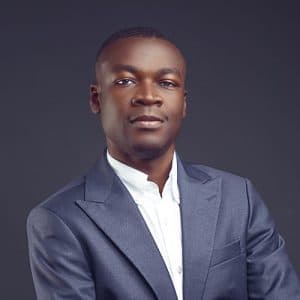re:publica Accra was a seminal moment

 Portrait of William Edem Senyo, Quelle: privat
Portrait of William Edem Senyo, Quelle: privat
William Senyo, what opportunities do you think digital media offer for Ghanaian society?
They are becoming an important structural component of society, not only in Ghana, but all over Africa. The opportunities opened up by mobile phones and internet penetration are vast: new sales pipelines, mobile money and banking apps, for instance.
And, of course, communication has changed in the last ten years. We in Ghana benefit from a strong democracy grounded in respect for the rule of law and civil liberties. This has allowed Ghanaians to make the most of social media, such as by opening legal platforms for debate. However, that is of course no substitute for good governance and solid infrastructure.
What is your view on the regulation of Ghana’s digital sector?
I think that regulation of the emerging digital economy should be loose, as this enables companies to develop innovations more easily. Strict regulation can make it more difficult for young entrepreneurs to gain entry to the market and can strengthen the interests of larger, more established companies. Nevertheless, regulators must always keep on top of the issues of data protection and privacy, of course.
Are digital media also being used in Ghana to meet sustainability goals?
Absolutely. Digitisation has improved the administration’s productivity and transparency and delivered significant cost savings, releasing funds for social and environmental purposes. There are also substantial impacts on the health sector, and on education and agriculture. The private sector plays a pivotal role here by developing innovative digital solutions for pressing problems: for instance, the drone company Zipline, which has worked with the Ghanaian government to deliver life-saving medicine to hard-to-reach parts of the country.
What were your experiences with re:publica Accra, which you co-organised in 2018?
In my view re:publica Accra was a seminal moment in Ghana’s recent history, because it brought together three different segments of progressive society: creatives/artists, tech entrepreneurs and people working for social change. They are, so to speak, the vanguard of a Ghanaian narrative of innovation, resilience and progressive thinking, but as yet their potential has not been properly harnessed. re:publica Accra made a start by bringing these groups together, and at the same time gave the media an opportunity to report on the digital trend in Ghana. Representatives of local and national government also took part, which might lead to new opportunities for public-private partnerships.
Even before re:publica you said you wanted to bring a range of players together. Why was that?
You know, it is true in principle that digitalisation can potentially break down barriers and blur the lines, but in reality it rarely happens. “Change makers” – that is, people who animate the digital space and can bring about change – seldom have the chance to present their ideas to people outside their own circle. Social media is as vast as the ocean, but everyone swims in their own corner. We immediately liked the concept of re:publica, because it looked like the type of festival that Ghana and Africa needed at this watershed development moment: a place where pioneers, artists, activists and innovators could share their different perspectives and develop their ideas in synergy for a smarter digital future.
Will there be a follow-up to the re:publica event in Ghana?
Definitely! We are looking forward to holding the next conference in 2020. As the local hosts, we are still in talks with the re:publica Germany team to finalise dates and partnerships. As I said, we are excited to welcome the next African re:publica conference – and want to make it an even bigger, more successful and more inspiring event.
Thank you for talking to us.
Interview by Christiane Weihe.
William Edem Senyo co-organised re:publica Accra, the digital conference first held in 2018 in the Ghanaian capital. More than 2000 delegates from 32 countries took part in re:publica Accra, which will be held again in 2020. Impact Hub Accra was founded by Senyo in 2013. Before that he obtained a degree in agribusiness from the University of Ghana and worked amongst other things for The Hunger Project – Ghana.
Further information